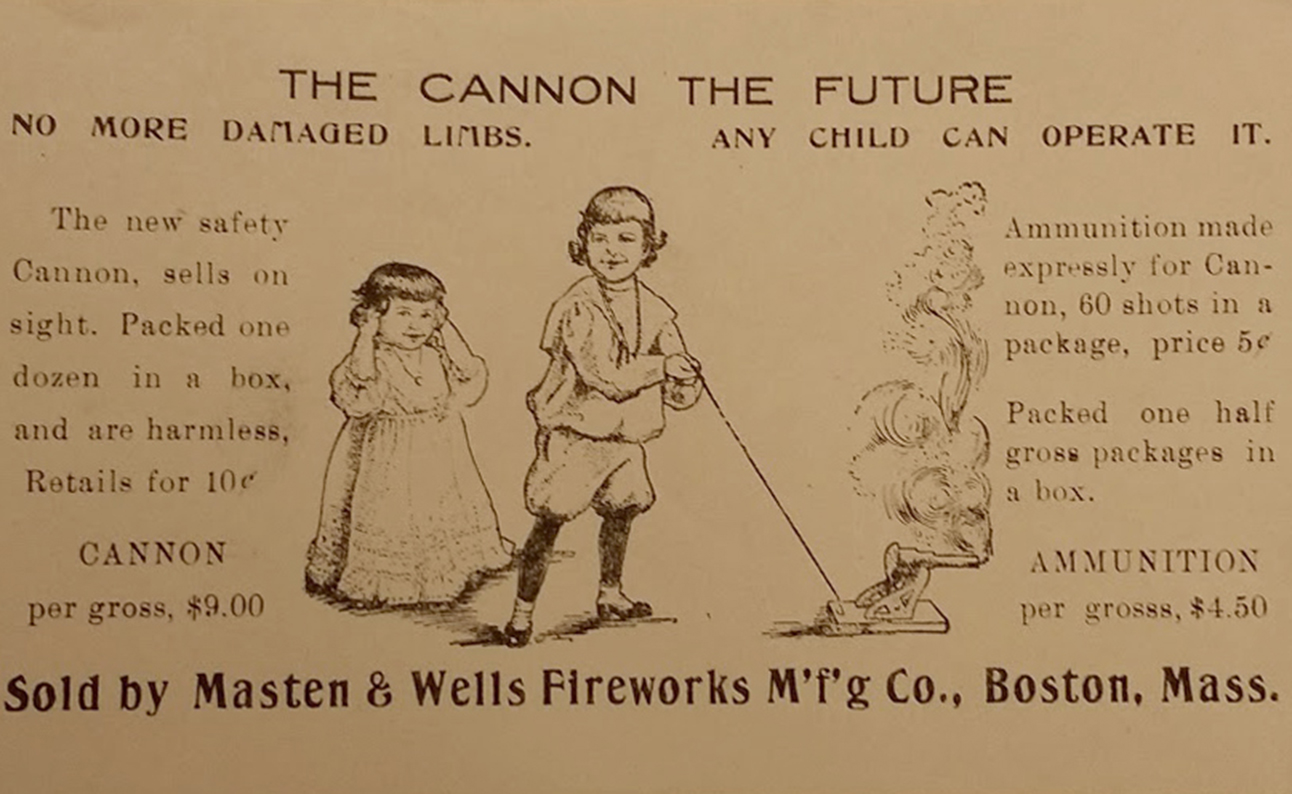
An early twentieth-century advertisement for safer fireworks, from the Warshaw Collection of Business Americana, Archives Center, National Museum of American History.
• Bringing the indoors outdoors at the turn of the twentieth century: “Camping brought the domestic work typically done by women into full view. One woman described her husband’s enjoyment of washing dishes in a creek, scouring them with mud and moss. ‘This recognition prompted the question of who exactly produced the comforts of civilization in an era where the definition of home came to center upon the purported absence of productive labor,’ Kropp writes.” (JSTOR Daily)
• Political intrigue and murder, Byzantine-style. (Medievalists.net)
• In 1903, 406 cases of “patriotic tetanus” proved fatal: “By the late 19th century, fireworks became intimately linked with political campaigns and patriotic holidays. An industry had developed to supply political candidates and patriotic revelers with everything from hats and bunting to Roman candles and shotgun-launched exploding shells. As a relatively inexpensive entertainment, fireworks could enthrall large crowds with lots of bang for the buck. However, now that children and adults had easy access to miniature explosives, tetanus cases increased. These Independence Day infections were so common that they became known as ‘patriotic tetanus,’ ‘Fourth of July tetanus,’ or ‘patriotic lockjaw.’” (National Museum of American History)
• A paternity suit is requiring the exhumation of Salvador Dalí’s body. (Atlas Obscura)
• A brief history of the press going to the White House: “During his 1896 campaign, McKinley staged a series of schmaltzy ‘front porch’ events with reporters. Once his front porch moved to White House, he took that media savvy with him. His secretary began to hold rudimentary press briefings. By the time the U.S. entered the Spanish-American War, reporters had grudging access to the White House. McKinley’s assassination served as another wedge. When Theodore Roosevelt renovated the White House in 1902, he insisted on a room for the press. He needed a pulpit.” (Longreads)
• Is it time to rehabilitate the ne’er-do-well reputation of Branwell Brontë? (The Guardian)